Social Interaction
When they are born, typically developing babies seem naturally able to be sociable and develop communication skills. Most typically developing young children just seem to know that other people are important to turn to for comfort, to share moments of pleasure with, to look to for guidance and to learn from. Many children/young people (CYP) with neurodevelopmental difficulties (NDD) do not seem to have this inbuilt desire to be sociable in the way that is defined by those who are neurotypical or they may have the desire but not the knowledge or awareness of unspoken social rules that most children pick up intuitively.
Successful Social Interaction allows us to:
Avoid or resolve conflict.
Work towards shared goals.
Reach our potential in life - by developing our problem solving and goal setting abilities.
Have successful relationships.
Live together in society peacefully.
Whilst every child is unique and has their own pattern of social interaction, some of the common differences we see are as follows:
The neurotypical world see social interaction as highly important and that it involves being in the same place as another person , however for some children and young people this desire is not as strong and they might prefer more remote social interaction such as X-box live and social media.
Others may have a strong desire for social contact. They may be desperate for friends but just don’t know how to go about making and keeping them. They never seem to get it quite right, as they struggle to read between the lines or get the general gist of what’s happening.
It can be very difficult for some children and young people to read the emotional language of others such as facial expression and body language and therefore respond appropriately.
Some adults with Neuro developmental differences tell us that eye contact can be quite painful or uncomfortable. This can help us to understand why some children may prefer not to make eye contact with other people.
Being part of a group can be really tricky for some children and young people. The complexities of reading the mood of a room and also the emotions of many participants can be exhausting. Their preference might be to spend time with one friend at a time or they might be quite happy alone.
Some may feel more comfortable with adults rather than children, whilst others may be more comfortable with younger age groups or older ones as they can be a reference for appropriate behaviour.
Social rules can be very confusing, e.g. not knowing when to take turns in conversations or games. Being able to transfer your behaviour from one circumstance to another e.g. altering the volume of your voice to the situation you are in such as cinema, assembly hall, playground.
Some children or young people can insist on sticking to rules and become distressed if a rule is broken e.g. always driving the car at 30mph or less in a defined speed zone or telling the teacher when a child in the class was speaking after she had asked for silence.
Some children are extraordinarily honest. They are sometimes described as having no filter so they may express a view or an opinion in a very blunt way i.e. “She looks old”. “His hair is awful”.
Being able to successfully express your own feelings can be very difficult for some children and may result in distressed behaviour.
Sometimes children can be perceived as being rude or arrogant as they don’t know how to alter their tone or presentation depending on the age or status.
Understanding another person’s point of view is extremely tricky for some children and young people. E.g. choosing the activity/game at playtime.
For some older children participating in group topic work may be extremely difficult as accepting someone else’s idea can be challenging.
Reading someone’s intentions can be difficult when body language and tone of voice can be confusing. E.g. The teacher showing her annoyance by tapping her foot and having her hands on her hips and stressing the child’s name.
Social Stories
This is a tool frequently used for children/young people (CYP) with neurodevelopmental difficulties (NDD) to help them understand social situations and how to behave appropriately within them.
Social Stories Film
Click on Image
Social Stories Page
Click on Image
How can we help our children/young people with Social Interaction
Be patient. This may take longer for your child, and they may need you to give them frequent advice and guidance prior to a social situation you know is challenging for them. Things may still go wrong but persevere, be supportive and help them to think about what they can do differently next time.
Listen actively and be reassuring. Try and be as understanding as possible that these situations can be overwhelming and challenging but you are there to help.
Try and read the situation and the child’s perspective i.e. if they cringe when being hugged by Auntie, give them a socially acceptable alternative e.g. fist bump or hi-five.
Name positively what we see, think or feel so they learn how to understand, process and express their own thoughts and feelings.
Use friendly and/or playful intonation as appropriate. Some children/ young people respond positively to humour and banter.
Say what we are doing. Give explanations of what is appropriate and what is expected for a new social situation i.e. School Dance or Christmas Party.
For children who are more complex we need to look for their initiatives i.e. if the child is playing with a toy or object join in at their level. Pick up on the interactions the child is portraying even if they are nonverbal.
Recommended Books
ISBN-10 1935274058 or ISBN13 978-1935274056
Click on Image
ISBN10 9781785921124 ISBN-13 978-1785921124
Click on Image
ISBN10 1785921371 or ISBN-13 1785921377
Click on Image
ISBN-10 1885477228 or ISBN13 978-1885477224
Click on Image
ISBN10 1843108321 or ISBN-13 978-1843108320
Click on Image
The Pines library is currently open on Wednesdays 10am to 3pm







